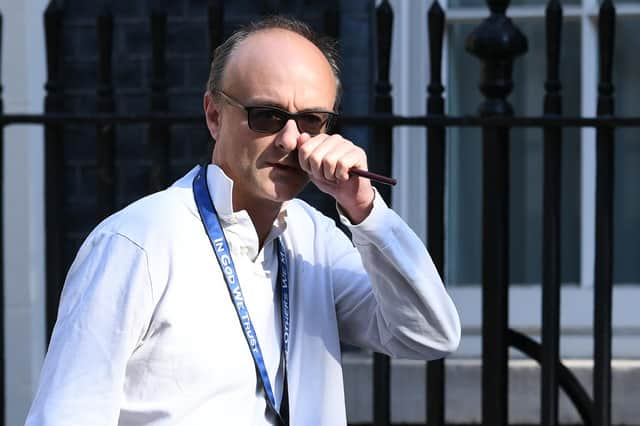Public trust in Government fell after Dominic Cummings’ Durham trip, report finds as watchdog complaint launched


The analysis released on Friday, August 7, conducted by University College London (UCL), found the actions of the Prime Minister’s chief adviser reduced people’s willingness to follow social distancing rules.
Published in the Lancet, the research analysed 220,000 survey results from 40,000 participants in UCL’s Covid-19 social study between April 24 and June 11.
Advertisement
Hide AdAdvertisement
Hide AdRespondents were asked how much confidence they had in the Government’s handling of the pandemic on a scale of one (none) to seven (a lot).
Among participants living in England, confidence dropped approximately 0.4 points on this scale between May 21 and 25.
A couple who claim to have seen the PM’s aide on a second lockdown trip to Durham have also filed an official complaint to the police watchdog, according to reports on Friday.
Advertisement
Hide AdAdvertisement
Hide AdDave and Clare Edwards told the Daily Mirror that they informed Durham Police in May that they had seen Mr Cummings while out walking in Houghall Woods near Durham on April 19 – the weekend after he had returned to work in London.
Durham Constabulary ultimately said they would not take “retrospective action” despite finding the adviser may have made a “minor breach” of lockdown laws by making a trip to the North East with his family earlier in April.
This included the trip to Barnard Castle on Easter Sunday which he said he used to assess his fitness to drive back to London the next day, following his recovery from illness.
Mr Cummings has denied making a second trip, insisting photos and data on his phone disprove the allegations.
Advertisement
Hide AdAdvertisement
Hide AdA spokeswoman for the IOPC told the PA news agency: “In accordance with the police complaints procedure, we have forwarded a complaint to Durham Constabulary.
“It will now be a matter for the force to determine the next steps including whether this complaint merits referral to the IOPC.”
